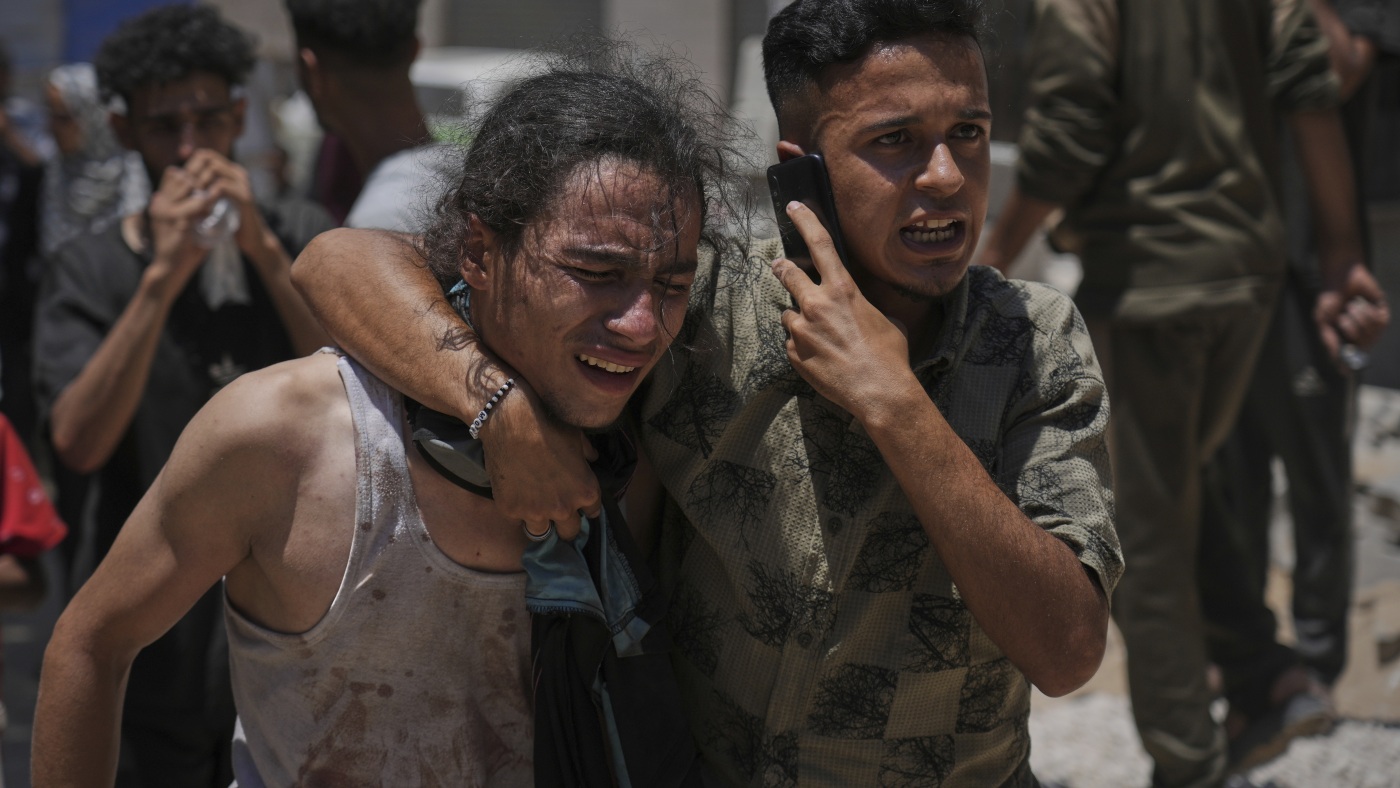The Aid Tragedy in Gaza: A Chronicle of Desperation and Death
Introduction
The humanitarian crisis in Gaza has reached a critical juncture, marked by widespread starvation and a desperate scramble for aid. Recent events, particularly those unfolding over the past few days, reveal a grim tableau of civilians risking their lives for basic necessities. Reports consistently highlight significant casualties among Palestinians attempting to access food and aid, raising profound questions about the conduct of military operations and the protection of civilians. This report delves into these events, examining the key issues and their broader implications.
The Sunday Massacres: A Day of Bloodshed
Sunday emerged as a particularly deadly day, with reports converging on a horrifying pattern of violence. Headlines such as “Nearly 100 people killed seeking aid in Gaza on Sunday…” underscore the scale of the tragedy. While the exact numbers vary—ranging from 73 to 94—the magnitude of the loss is undeniable. These incidents occurred during food aid distributions across the Gaza Strip, where large crowds gathered in hopes of receiving essential supplies.
Witnesses described chaotic scenes, with Israeli military fire cited as the primary cause of the deaths. The specific circumstances and justifications for these actions remain contested. Some accounts suggest direct targeting, while others point to warning shots that escalated into deadly incidents due to the overwhelming number of people present. The lack of clarity underscores the need for independent investigations to determine the truth and ensure accountability.
Beyond Sunday: A Recurring Pattern of Violence
The Sunday massacres were not isolated incidents but part of a larger pattern of violence surrounding aid distribution. Reports from the days leading up to and following Sunday reveal a disturbing trend. For instance, on Saturday, at least 26 people were killed near two Gaza aid sites, while another account details 32 Palestinians shot dead while attempting to reach food distributed by a U.S. group. These events highlight the pervasive danger faced by civilians seeking aid.
The locations of these incidents are also significant, occurring near aid hubs, along borders, and at distribution points. This suggests that even proximity to humanitarian operations does not guarantee safety. The repeated targeting of individuals seeking aid raises serious concerns about the effectiveness of deconfliction mechanisms and the ability of aid organizations to operate safely within Gaza.
Humanitarian Catastrophe: Starvation as a Weapon?
The escalating violence surrounding aid distribution occurs within the context of a severe humanitarian crisis in Gaza. Reports explicitly mention the threat of starvation and malnutrition, particularly in the northern Gaza Strip. Advocacy groups have accused Israel of “forcibly” starving Palestinians, a charge that, if true, would constitute a grave violation of international humanitarian law.
The combination of limited aid access and increasing violence creates a dire situation for the civilian population. Desperate for food and basic necessities, people are forced to risk their lives to obtain aid. The repeated targeting of individuals seeking aid raises serious questions about potential violations of international law and the obligations of warring parties to protect civilians.
Conflicting Narratives and Accountability
The reports hint at conflicting narratives surrounding these incidents. Palestinian officials and witnesses attribute the deaths to direct Israeli military fire, while the Israeli military often cites different accounts, such as the use of warning shots. These discrepancies underscore the need for independent investigations to determine the precise circumstances of these incidents and to ensure accountability for any violations of international law.
Without thorough and impartial investigations, it will be difficult to establish the truth and to prevent similar tragedies from occurring in the future. The lack of accountability also risks further eroding trust and exacerbating the already fraught relationship between Israelis and Palestinians.
The International Response: A Call for Action
The events in Gaza demand a strong and unified international response. World leaders and international organizations must condemn the violence against civilians seeking aid and call for an immediate cessation of hostilities. Increased pressure on all parties is necessary to ensure unfettered access for humanitarian aid to reach those in need.
The international community must also support independent investigations into these incidents to ensure accountability and justice for the victims. Failure to do so would not only condone impunity but also risk emboldening further violations of international law.
The Way Forward: Prioritizing Civilian Protection
The tragic events in Gaza serve as a stark reminder of the human cost of conflict. The protection of civilians must be paramount, and all parties must take concrete steps to minimize harm to non-combatants. This includes respecting the principles of distinction, proportionality, and precaution in the conduct of military operations.
Greater efforts are needed to ensure the safe and orderly distribution of humanitarian aid. This may require establishing secure corridors for aid convoys, coordinating with local authorities to manage crowds, and providing adequate security for aid workers. It also necessitates a commitment from all parties to refrain from targeting civilians, even when they are seeking aid.
A Legacy of Loss: Remembering the Victims
Ultimately, the reports from Gaza tell a story of immense suffering and loss. Behind the statistics are individual lives cut short, families torn apart, and communities traumatized by violence. It is essential to remember the victims and to honor their memory by working tirelessly to prevent similar tragedies from happening again.
The events in Gaza are a stain on our collective conscience. We must learn from these mistakes and renew our commitment to upholding international humanitarian law and protecting the lives and dignity of all civilians caught in the crossfire of conflict. Only then can we hope to build a more just and peaceful future for all.

